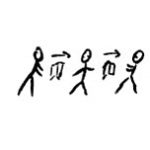
Author -> Agent -> Publisher
If you want to be traditionally published, with a contract and an advance, and all that, in all likelihood, you’ll need to work with an agent. That’s because most traditional publishers are still using agents to do quality control on the manuscripts they receive.
Agents are supposed to weed out the bad manuscripts and only send the good ones to the publishers. They are supposed to know what’s the fashion and which editor likes which genre. They are supposed to have good connections in the literary world and use them for your good.
They are also supposed to work for the you, the author, and negotiate good contracts and advances. After all that’s why they usually want 15% of all royalties your book earns (and the advance, too). Often enough, that money goes to the agent first who then takes the percentage due and passes on the rest to the author. That’s how it’s supposed to work.
Ideally this does work, if the agent is honest and responsible. And it used to work like this for a long time. But the devil is in the details, as always.
You see, everyone can call themself “literary agent”.
I could. You could. Your neighbor’s grandmother could. There’s no test or license or anything to control them. There is not even a union or a guild or a standard set of ethics rules.
They don’t have to have any contacts to the literary world. They don’t have to know a single thing about contracts, copyright laws or even bookkeeping. They can simply call themselves agents, send out the manuscripts they have been entrusted with and get those 15% if they make a sale. Easy peasy, right?
Well, not anymore. Contracts have become draconian (I’ll get to contracts soon), the triangle of author, agent and publisher has become a potential source of many problems, and … authors no longer really depend on them, either. Their monopoly is gone.
Authors no longer need an agent to get a book into the market.
Selfpublishing took care of that. Authors can use several distributors to sell their books to readers, without the middlemen agents and publishers.
Being squeezed by the changing world of publishing, some agents have become publishers in their own right, starting small presses. Which presents a massive conflict of interest – does the agent serve the author or his own publishing business?
In addition, desperate agents have started to create contracts where they grab 15% of any author income, even if it’s earned through self-publishing. Yes, that’s happened. Kris Rush explains how this can be written into a contract in this very informative post: Agents and Money. And it has only gotten worse since that post.
So be very, very careful before you sign a contract with an agent.
Be careful and make sure there are ways out of the contract if you’re unhappy. Show the contract to a lawyer before signing it. I’m dead serious.
Of course, first you have to find an agent. And finding one goes exactly the same way you find a publisher: Search on the internet, check out their sites, check out the genres they represent, read Writer Beware and check for any warnings about them, check if they list authors they represent, check back with those authors… then write query letters, submit your manuscript, and wait for an answer. Yes, it’s a tedious process.
And to be totally honest with you: I believe self-publishing is the best way to go, and you avoid dealing with agents almost entirely. Which is most likely a good thing.
But… since I’m here to support you even if you insist on getting an agent, I’ll help you foster a mindset that will help you avoid the pitfalls and dangers of finding and working with one.
Here’s some tapping for you.
Even though it is so difficult to find an agent I can trust, I’m totally okay the way I am, and I now choose to be extra diligent in finding one who does good work and who is honest.
Even though I really want an agent to represent me and send my books to publishers, and negotiate my contracts, I’m totally okay the way I am, and I now choose to be clever and careful about who I entrust my manuscripts to.
Even though it seems daunting to find an agent I can trust – and who will actually like my books and want to represent me! – I am totally okay the way I am, and I now choose to do my very best and be diligent and careful about the agent and the contract I sign.
Your Turn:
How do you feel about finding an agent?
Are you willing to be diligent about checking them out?
How does it feel knowing the dangers?
What happened while you were tapping?
And finally – what are you creating right now?
Please share in a comment!
Image Source: F. Moebius
PS: My newsletter contains a full tapping round to go with my blog posts, so it’ll be easier for you to get results. Sign up through the form on the upper right hand corner, and receive an introduction to EFT as a gift, find that specific tapping round plus occasional special offers. If you’re on a mobile and can’t see the sidebar, you can sign up through this link: Newsletter Sign-up.
